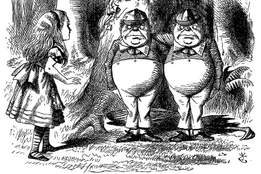Internal Revenue Code
Law
26 U.S.C. § 1 et seq.
| (1986)
legislation governing federal tax law. The Internal Revenue Code was first enacted into law in 1939 as a compilation of U.S. statutes relating to internal revenue from 1862 to 1938 that were still in force in 1939. A revised Internal Revenue Code was enacted in 1954, and the 1954 Code was revised and redesignated the Internal Revenue Code of 1986 by the Tax Reform Act of 1986. The Code defines the scope and operation of the entire U.S. tax system. It is recognized as one of the longest and most complex laws in the world. Among its numerous provisions, it sets limits on taxes collected on the manufacture of alcohol, tobacco, and firearms; describes the funding requirements for private pension plans; states the tax requirements for maintaining social insurance; determines government revenues from corporate, excise, estate, and gift taxes; and lays the basis for the collection of personal income taxes. The code is administered by the Internal Revenue Service.
Love words? Need even more definitions?
Merriam-Webster unabridged








Share